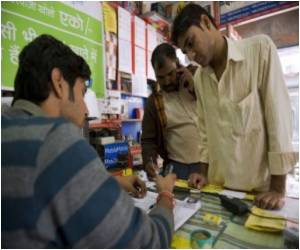73-year-old Vinitka Nacheva is hunched over a table at a dilapidated Roma school in northwest Bulgaria as she delightedly pours over texts and maths exercises.

"I go to school with joy in my heart every afternoon, after I have worked in my garden," says Nacheva, whose learning is hampered only by a cataract blurring her view of the blackboard in the Berkovitsa school.
With about 700,000 people, Bulgaria's Roma community makes up 10 percent of the population. The vast majority live in poverty and unemployment is rampant.
Of those enrolled on the programme, some 4,600 chose primary-school-level classes. Many of these are unemployed Roma.
For 29-year-old Sofka Asenova, the classes offer a chance to catch up on lost time.
"I had to take care of my brothers and sisters and I got married at 15," says Asenova as she learns about the difference between singular and plural.
Advertisement
Young marriages like Asenova's are causing many Roma to miss out on a decent education, says Katia Georgieva, the dynamic director of the Roma school.
Asenova will sit for her primary school certificate this autumn. If she passes, she will receive 55 leva (28 euros, $35) and can start her secondary education with a private tutor, ahead of the next summer programme.
Programme participants receive four leva per day, which is often what attracts them to the course in the first place. Over a month, that amounts to 80 leva, double what many receive in social benefits.
But once they start learning, "money is not their main motive anymore," Georgieva says.
Bulgaria joined the EU in 2007 and the bloc is providing 15 million leva (7.6 million euros, $9.6 million) to fund the programme for two years.
According to last year's census, a massive 12 percent of the Roma minority is illiterate, compared to 0.5 percent for the rest of the population.
The programme lasts between three and five months and teaches basic skills like reading, writing and arithmetic -- as well as more advanced topics at a higher level.
"School already helped me fill out my social aid application," says Slavka Ivanova, a 43-year-old mother of six.
Before she learned to write, she paid a social worker one lev (50 euro cents, $0.64) to fill in the form. And he would insult her, she says.
Petar Todorov meanwhile is taking classes to get a legal driver's licence to replace his current, less regular one.
"I picked raspberries in Italy, now I'm leaving to pick olives in Greece. But without a driver's licence, my hands are tied," he says.
Aside from maths and reading, pupils also learn practical living tips.
"I tell them about contraception, I insist on hygiene," says director Georgieva, who teaches biology.
In this run-down neighbourhood, home to 2,500 people, the electricity has been out since the bills went unpaid.
"We never have enough to eat," adds Ivanova, who receives 40 leva each month in unemployment benefits, provided she works part-time as a cleaning lady.
She also receives 35 leva for each child and sells medicinal herbs and mushrooms she finds in the forest.
"We barely survive. How can you send the kids to school in town? You have to dress them, give them shoes or else they'll be called 'dirty gypsies'," she says.
Even children from wealthier Roma families rarely complete their secondary education, Georgieva says.
Her current pupils are now waiting for their next payment.
"Who will study without money? Better yet to pick plums," they say.
Source-AFP











